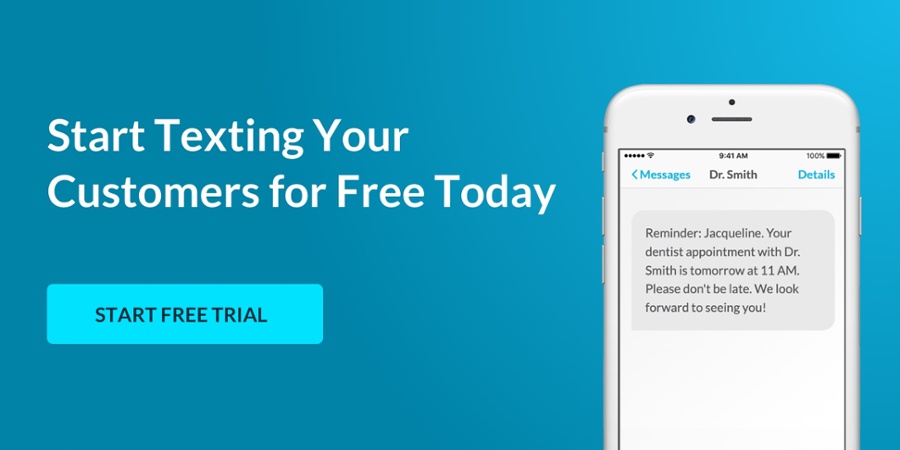Customer relationship management (CRM) is a software system that tracks, manages and analyzes a company’s interactions with its leads and customers. CRMs boast many benefits, from helping companies nurture their leads to optimizing marketing campaigns to align with sales targets.
Yet, while CRMs prove helpful, they also place a burden on your monthly budget. Most CRMs charge a monthly fee per user, which can add up quickly for companies with large teams. As a result, it’s important to carefully evaluate the pros and cons before implementing a CRM.
So, do you need a CRM? Below, we’ll explain how CRMs work and who uses CRM software. After that, we’ll help you determine if a CRM is right for your company.
How Does a CRM Work?
A CRM collects data about a company’s customers through various channels, including its website, email, social media profiles, phone calls and more. It then compiles this data into customer profiles, allowing CRM users to review customers’ interactions with the company.
Once the profiles are live, users add notes about their interactions for future reference. By storing this data in one place, CRMs promote cohesion among sales teams and enhance alignment with marketing and customer service departments.
Some types of CRMs also include marketing automation tools, SMS messaging integrations and other special features.
CRM Example: Understanding Who Uses CRM Software
Let’s take a look at an example of a CRM in action.
A salesperson contacts a new lead over the phone. After hearing the sales pitch, this lead says they’re not ready to sign a contract just yet, but they may be better positioned to do so in the new year.
The CRM automatically logs this phone call in the lead’s customer profile. After that, the salesperson summarizes their conversation with the lead in the notes section and schedules a check-in call reminder for the first week of January.
Thanks to the CRM, this lead won’t be contacted by other salespeople before they’re ready to buy. What’s more, the salesperson who reached out initially won’t forget to retarget them at the ideal time.
Who Uses CRM Software?
CRMs are often used by companies with large or growing customer bases. Thus, nearly any company can leverage CRM software to its advantage.
CRM software is quite popular in the following industries:
- Retail
- E-commerce
- Financial services
- Real estate
- Healthcare
- Manufacturing
- Telecommunications
- Hospitality
- Education
- Law
- Automotive
- Travel
- Government
These industries use CRMs in different ways, however. For example, a hospital may employ a CRM to manage appointment scheduling, medical records and patient communication. Meanwhile, a retail store may use its CRM to track its customers’ purchase history, manage its loyalty programs, refine its marketing campaign segmentation and optimize its inventory according to customer demand.
What Are the Different Types of CRMs?
Not all CRMs are created equal—some are better suited for certain companies and industries than others. Here are some common types of CRMs and their popular applications:
- Operational CRMs focus on streamlining and automating operational processes, such as lead management, sales, marketing and customer support.
- Analytical CRMs provide detailed data and analytics about customer interactions, enabling companies to fine-tune their customer segmentation, marketing campaigns and sales strategies.
- Collaborative CRMs promote better team communication and collaboration by giving users access to collaborative calendars, document-sharing tools and task management trackers.
- Campaign management CRMs aim to optimize campaigns by including savvy marketing features, such as lead tracking, lead scoring, marketing automation and campaign analytics.
- E-commerce CRMs cater to the unique needs of e-commerce businesses, providing them with order and inventory management, online shopping cart integrations and online customer behavior tracking tools.
- CRMs with SMS allow your customer database to leverage the advantages of texting. A CRM with text messaging capabilities can send timely messages to customers regarding order confirmations, shipping updates, appointment reminders, special promotions, product launches and more.
Do I Need a CRM?
Now that you know the basics, you may be wondering if it’s worth the investment. There are some tell-tale signs that your business could benefit from a CRM, especially in these key areas:
Customer data:
- You don’t have a central place to store your customer data.
- Your customer information is hard to locate.
- Your customer database is disorganized.
Customer communication:
- You don’t have a reliable way to log interactions with your customers.
- You frequently forget the channels and content of your conversations with customers.
- Leads often fall through the cracks, resulting in missed opportunities for your business.
Customer experience:
- Your company needs better communication and collaboration across teams.
- Your salespeople accidentally reach out to the same leads, causing them irritation.
- Your team members need to check in with leads and customers at specific times.
Marketing and sales misalignment:
- You need help tracking the status of your marketing and sales campaigns.
- You don’t have access to easy analytics about these campaigns.
- Your marketing and sales departments are disjointed.
If your company is facing any of these issues, a CRM is the tool that’s designed to help resolve them.
Do You Really Need a CRM? Considering the Counterargument
While CRMs have much to offer, they’re not necessary or cost-effective for all companies. You may not want to invest in a full-fledged CRM if you:
- Run a small business with a limited customer base
- Primarily communicate with customers using a single channel, such as SMS
- Don’t have the budget for a costly CRM
In these cases, you can gain many of the benefits of a CRM by using a more affordable alternative, such as a mass text messaging platform.
Since 99% of text messages are opened, and 90% are read within three minutes of being received, SMS is one of the most effective channels for connecting with customers.
Take Advantage of Mass Text Messaging with Textedly
CRM software can bolster your company’s data collection, give your sales and marketing teams the visibility they need to nurture leads effectively and elevate your company’s customer service. From an operational CRM to a CRM with text messaging, you have many options to choose from.
Before committing to an expensive CRM, review your company’s resources, budget and unique needs. You may find that a mass text messaging platform, like Textedly, can do the trick. Our budget-friendly bulk texting platform includes the following features:
- Contact list importing - you can upload your current contacts (along with their name, email, birthdate and notes) in seconds.
- Customizable website forms - you can grow your contact list by having online visitors opt-in on your website.
- SMS keywords - a service we provide to help you grow your contact list quickly.
- Custom fields - you can personalize your SMS messages to drive more engagement and conversions.
- Short code texting - you can send SMS texts at scale from an easy-to-remember five-digit number.
- Recurring campaigns - you can craft daily, weekly or monthly marketing campaigns to engage your customers and stay top of mind.
- Mass text scheduling - you can plan your SMS campaigns in advance.
- Conversation triggers - you can send automated responses to your customers' frequently asked questions via SMS.
- Data collection - you can store all of your customers’ SMS data in one place, similar to a CRM.
- CRM integration - you can connect Textedly to a CRM with texting capabilities if you choose to use one in the future.
Want to try out these features for free? Start your free trial of Textedly today.







.png)